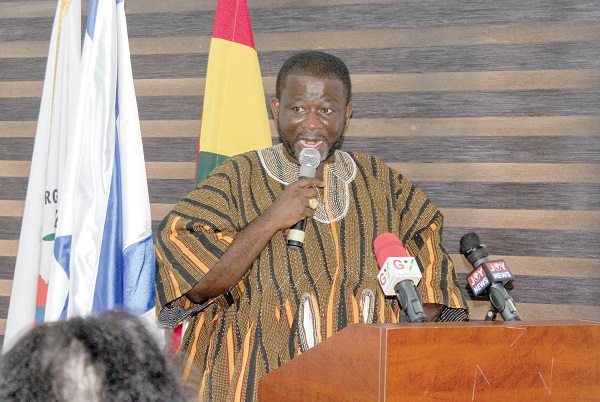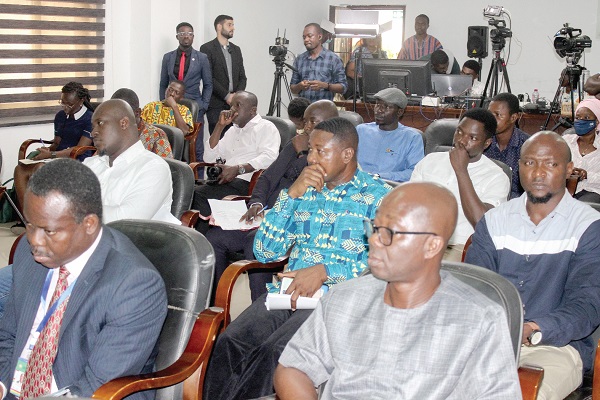
Local disasters require multi-hazard approach — NADMO boss
The Director-General of the National Disaster Management Organisation (NADMO), Eric Nana Agyeman-Prempeh, has called for a strategic shift from a one-directional system to a multi-hazard approach to manage disasters.
He said such a move was necessary in the wake of the frequency and intensity of disasters in Ghana.
He said technology and collaboration were key enablers in developing and implementing a multi-hazard approach to early warning response and disaster risk reduction.
“The devastating fire and flood disaster of June 3, 2015, in Accra is a classic example of a multi-disaster emergency that requires advanced technology to deal with it,” he noted.
He said out of the many disasters in Ghana, flooding was the most common that occurred every year and was managed by NADMO with a strong stakeholder collaboration.
Disaster forum
Nana Agyeman-Prempeh was speaking at an executive breakfast forum organised in Accra to discuss Ghana's disaster risk reduction strategy.
Dubbed: “Israel-Ghana Emergency Preparedness and Crisis Management”, the forum provided a platform for stakeholders to discuss the country’s ability to deal with emergencies and manage crisis.

The forum was organised by the Israel Economic and Trade Mission to Ghana and the Israel Export Institute, in collaboration with NADMO.
It brought together personnel from the security agencies and representatives from the Ghana Health Service, the Ghana Geological Survey Authority, the National Development Planning Commission and the National Signals Bureau.
Other participants came from CDD Ghana, the National Centre for Coordination of Early Warning and Response Mechanism, the Ghana Journalists Association, the Ghana Maritime Authority, the Ghana Institution of Engineers, and the Hydrological Services Department.
Five Israeli companies presented Israeli innovative solutions and technologies in the areas of communication, emergency preparedness and public safety, disaster management, and search and rescue areas.
Earthquake
In terms of earthquake, the Director-General of NADMO said records from the Ghana Geological Survey indicated 11 earth tremors on December 12, 2022, spanning nearly two-and-a-half hours.
He said such disasters, among others, made it critical to collaborate with international partners to adopt best practices.
Nana Agyeman-Prempeh said it was also to adhere to the Sendai Framework for Disaster Risk Reduction (2015-2030), an international document adopted by the United Nations (UN) member states, which called for the need for international collaborations.
“The Sendai framework priorities emphasise the need to invest in disaster risk reduction and the importance of establishing strong private sector collaboration,” he said.
Collaborations
The Israeli Ambassador to Ghana, Liberia and Sierra Leone, Sholmit Sufa, said she had so far witnessed the Appiatse mine explosion disaster, the annual rainfall flooding and the many fire outbreak incidents.
She said such situations called for a national conversation on emergency preparedness, crisis management and best practices to solve them.
She expressed excitement about the partnership, and the hope that some of the innovative solutions developed in Israel could be applied in Ghana to enhance emergency preparedness and crisis management.
“We also hope to highlight some key challenges related to Ghana’s emergency preparedness and crisis management that could have potential solutions from the state of Israel,” she added.
